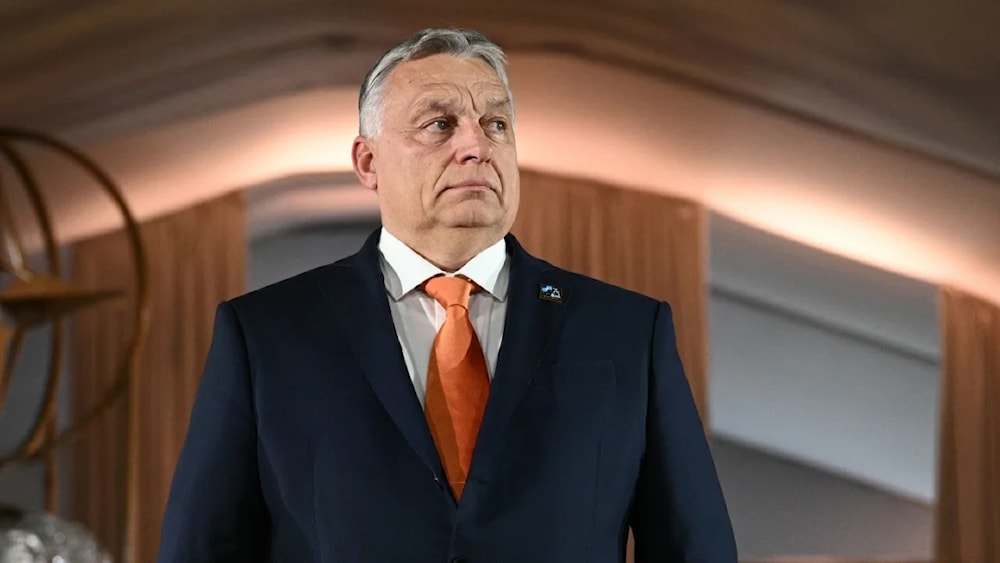Hungary opposes EU joint statement on Venezuela's election results
Hungary has once again opposed the European Union on foreign policy and affairs by vetoing its statement on Venezuela.
-

Hungary's Prime Minister Viktor Orban arrives for the NATO 75th Anniversary Celebratory Event at the Mellon Auditorium in Washington, DC, on July 9, 2024. (AFP)
Hungary vetoed a proposed unified statement from the European Union concerning Venezuelan President Nicolas Maduro's victory in the recent elections, ultimately hindering its adoption, the media reported on Wednesday.
The bloc's statement sought to express concerns over the alleged "flaws and irregularities" in the voting process, Politico reported, citing two official sources close to the discussions. The European Union's stance on the elections and its call for transparency was hindered by Budapest's opposition.
EU foreign policy chief Josep Borrell published the statement under his name, claiming “credible reports from domestic and international observers indicate that the elections were marred by numerous flaws and irregularities."
“Until voting records are made public and are verified, the election results as already declared cannot be recognized," Borrell said in a follow-up statement that considered Hungary's position, after proclaiming the public results provided by the Venezuelan opposition differ from the announced results.
Venezuelan opposition declares Maduro's rival Gonzalez president-elect
Venezuelan opposition leader Maria Corina Machado announced on Monday that the opposition views Edmundo Gonzalez, the main rival to President Nicolas Maduro, as the winner of Sunday's presidential election.
Machado said, "I would like to tell all Venezuelans and the world that Venezuela has the next president, and it is Edmundo Gonzalez... All of the world knows that. We won in all of the country's states."
Elvis Amoroso, chairman of Venezuela's National Electoral Council, declared Maduro the winner of the election, citing that he secured 51.2% of the vote with 80% of the ballots counted.
Exit polls put Gonzalez, of the Unitary Platform opposition alliance, at 44.2%, while Machado claimed that Gonzalez scored 70%.
The move by the opposition could risk destabilizing the country at a critical time, particularly since countries that have meddled in Venezuela's internal affairs over the past few years and sowed instability are rejecting the results as well.
Read more: Exit poll used by Venezuela opposition sourced from US gov-linked firm
For Maduro, the upcoming six-year term will be his third consecutive presidential term. He has led the Bolivarian Republic since 2013, and his inauguration as the newly reelected president is scheduled for January 10, 2025.
On Sunday, in his first speech after being named the winner of the presidential election, Maduro asked foreign countries interfering in Venezuela's internal affairs to respect “the sovereign life of Venezuela” and “popular will.”
“This is not the first time that they have tried to violate the peace of the Republic,” he stressed.
He added, "This is a victory for peace, stability, and the Republican legacy. This is a victory for equality. From today, there will be peace and stability in the country." Addressing late President Hugo Chavez, Maduro said, "This is your victory, Chavez."

 3 Min Read
3 Min Read








